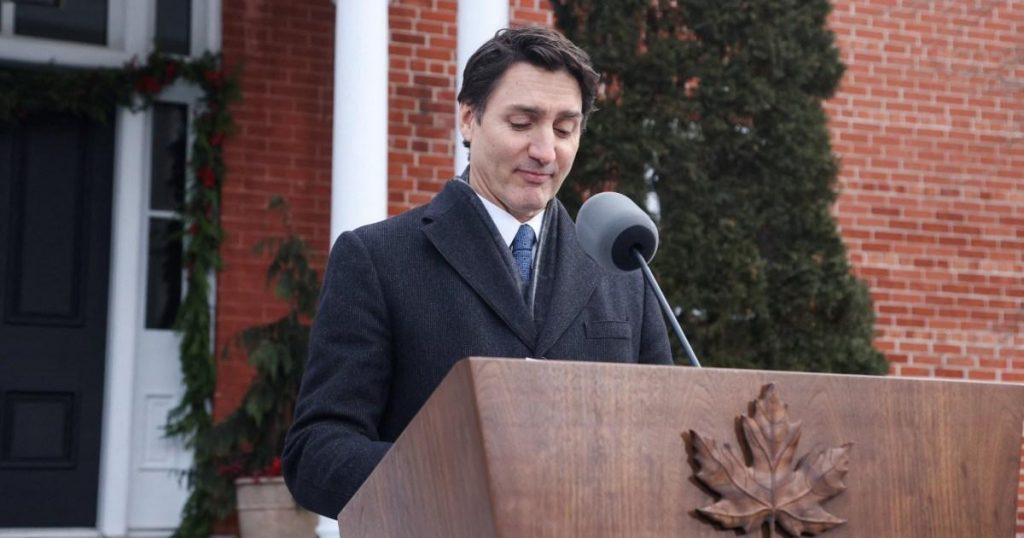A Decade at the Helm: Justin Trudeau’s Tenure as Canadian Prime Minister
Justin Trudeau, the charismatic figure who ascended to the position of Canada’s Prime Minister in 2013, recently announced his decision to step down as leader of the Liberal Party, marking the end of an era. His decade-long leadership, while punctuated by significant policy achievements and navigating complex international relations, also faced its share of controversies and dwindling public support. The upcoming election, slated for October 20th, looms large, with the Conservative Party, led by Pierre Poilievre, poised to capitalize on the Liberals’ declining popularity.
Trudeau’s announcement, delivered outside his Ottawa residence, Rideau Cottage, cited "internal battles" within the Liberal Party as the primary reason for his departure. He emphasized his commitment to ensuring a smooth transition, stating his intention to remain as Prime Minister until a new party leader is chosen. To facilitate this process, Parliament will be prorogued until March 24th, providing ample time for the Liberal Party to select its new standard-bearer. Trudeau’s tenure, while shorter than his father Pierre Trudeau’s fifteen years in office, surpasses the terms of several other Western leaders who were in power when he first took office, including Barack Obama, David Cameron, Angela Merkel, and Francois Hollande.
Trudeau’s legacy is a complex tapestry woven with both triumphs and challenges. He spearheaded significant social and legal reforms, legalizing assisted dying and recreational cannabis use, reflecting a progressive social agenda. In the wake of a tragic mass shooting in Nova Scotia, he implemented an assault weapons ban, addressing concerns about gun violence. These legislative achievements stand as testaments to his government’s commitment to addressing complex social and public safety issues.
However, Trudeau’s leadership was not without its share of controversies. The emergence of images depicting him in blackface dealt a significant blow to his public image, sparking accusations of insensitivity and prompting calls for accountability. His relationship with former US President Donald Trump, while characterized by cordiality, also presented its share of complexities, navigating the delicate balance between maintaining international alliances and upholding Canadian interests.
In recent times, Trudeau’s government has faced mounting challenges, reflected in a series of by-election defeats and declining public approval ratings. The resignation of Finance Minister and Deputy Prime Minister Chrystia Freeland, a key figure in his cabinet, further weakened his position and signaled growing internal discontent. This resignation, coinciding with the scheduled delivery of the government’s autumn economic update, amplified concerns about the government’s economic direction and underscored the challenges confronting Trudeau’s leadership.
Trudeau’s decision to step down marks a pivotal moment in Canadian politics. The upcoming election will determine the future direction of the country, and the Liberal Party faces the daunting task of selecting a new leader capable of revitalizing its fortunes and regaining public trust. As the political landscape shifts, the Canadian electorate will weigh the legacy of Trudeau’s decade in power, considering both the achievements and the challenges that defined his tenure. The transition of power within the Liberal Party presents an opportunity for renewal and introspection, as they prepare to navigate the complexities of the upcoming election and chart a course for the future of Canada.
The upcoming election is poised to be a defining moment in Canadian politics. The Liberal Party, now tasked with selecting a new leader, faces the challenge of regaining public trust and presenting a compelling vision for the future. The Conservative Party, under Pierre Poilievre’s leadership, sees this as an opportune moment to capitalize on the Liberals’ vulnerabilities and present an alternative path for the nation. The political landscape is dynamic, and the Canadian electorate will play a crucial role in shaping the direction of the country in the years to come. The legacy of Justin Trudeau’s decade in power will undoubtedly be a subject of ongoing debate and analysis, as Canadians reflect on the successes and challenges that defined his era.











